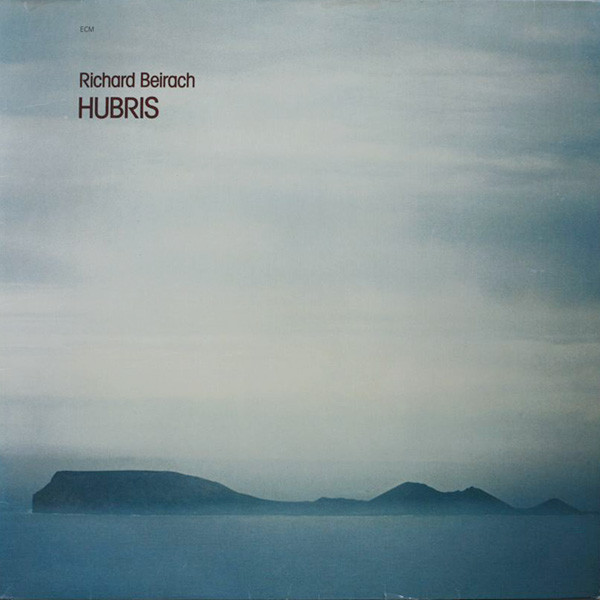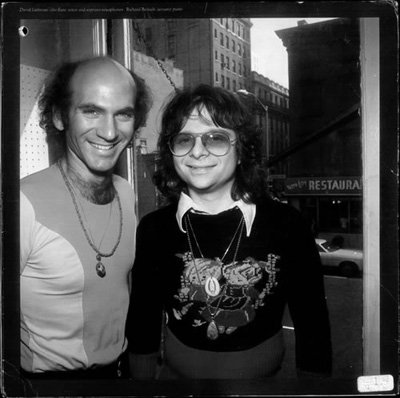"Without love in your
playing, it might sound impressive but it means nothing."
Richard Alan Beirach was born on 23 May 1947 in Brooklyn, New York City and started playing the piano at the age of 5.
From age 6 to age 18, Richie was given lessons by the pianist and composer James Palmieri. “James Palmieri showed me everything that I know about the piano. He made me understand the deeper meaning of music.”
At the age of 13, while staying at a friend’s place, Richie heard Red Garland’s version of “Billy Boy” from Miles Davis’ album “Milestones”: “I could hardly believe it. This was exactly what I was looking for and what I needed. Until then, I had only had a classical musical education: Mozart, Beethoven, no improvisation. Richie realized that he wanted to devote himself to improvisation and jazz.
In the middle of the 1960s, Richard Beirach entered the New York club scene, playing with, among others, Freddie Hubbard and Lee Konitz while at the same time occasionally working as a longshoreman at the docks of New York. In 1967, he went to Boston to study at the Berklee College Of Music where Keith Jarrett, Miroslav Vitous, and John Abercrombie were enrolled as well. Staying at Berklee for only one year he returned to New York in 1968 where he started a composition degree with Ludmilla Ulehla at the Manhattan School Of Music, from which he graduated in 1972 with a “Master Of Music”.
Soon afterwards, he played in the band of Stan Getz, together with bass player Dave Holland and drummer Jack deJohnette. In 1973, he joined the group “Lookout Farm” of the saxophone player Dave Liebman. “Lookout Farm” became one of the most outstanding groups of the Fusion movement and the cooperation between Beirach and Liebman lasted well beyond the group, which broke up in 1976, developing in to a lifelong musical partnership.
In 1976, the first album under Beirach’s own name was released: “Eon”, recorded with drummer Eliot Zigmund and bass player Frank Tusa. For the label ECM, Beirach worked as a leader, e.g. on the albums “Eon” in 1976, “Elm” in 1979, “Elegy for Bill Evans”, and as a sideman respectively (for John Abercrombie and George Adams) from the middle of the 1970s until the beginning of the 1980s.

"Don't tell me how fast he plays, tell me how much he moved you."
Richie’s first solo piano album “Hubris” was released by ECM in 1977. At that time, he went on tour with, among others, Chet Baker, John Scofield and John Abercrombie.
In the 1980s, Richie Beirach focused increasingly on the solo piano and, parallel to that, on the cooperation with David Liebman in their duo and in the band “Quest”, which they founded together in 1981, with drummers Billy Hart and Al Foster and George Mraz or Ron McClure on the bass, respectively. Until their break-up in 1991, the band recorded six albums: “Quest”, “Quest 2”, “Midpoint: Live at the Montmartre”, “Natural Selection”, “N.Y. Nites: Standards” and “Of one mind”, and went on tours throughout Europe, Asia and South and North America. Stylistically, the quartet did not set any limits and thus played both standards and original compositions with the same intensity and freedom. Beirach then devoted himself increasingly to playing solo. The album “Live in Tokyo” (1981) was recorded during a Japan tour.

Richie has mostly worked with two different trios; together with his musical fellows George Mraz (bass) and Billy Hart (drums), he recorded the album “The Snow Leopard” in 1996. That was followed by “Romantic Rhapsody” and “What is this thing called love”, which showed a fresh view on standards and some own compositions. “No borders” (2002) focuses on classical pieces as a basis for improvisation, and, on the other hand, also contains a completely composed original composition by Beirach: “Steel Prayers”, a piece for the victims of 9/11. To take classical pieces and open them for improvisation, without depriving them of their character, is also the basic principle in the cooperation with violinist Gregor Hübner. The trio with Beirach, Hübner and again George Mraz on the bass has released three albums with the label ACT. “Round about Bartok”, “Round about Federico Mompou” and “Round about Monteverdi” are each dedicated to the respective composer and try and approach them via improvisation.
Richie has been retired from his professorship teaching in Leipzig and since 2015 has been living in Hessheim, Germany where he has been active with a new young trio, a new solo piano release on Jazzline Records, and is involved with a group with Gregor Huebner and the Sirius String Quartet along with many other projects throughout the world.

